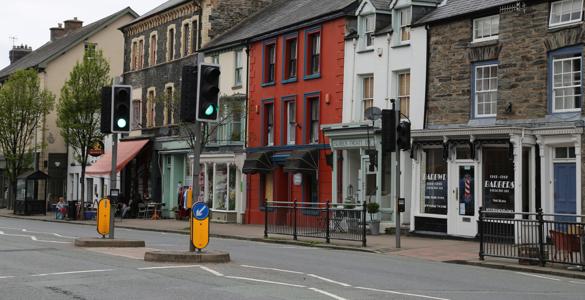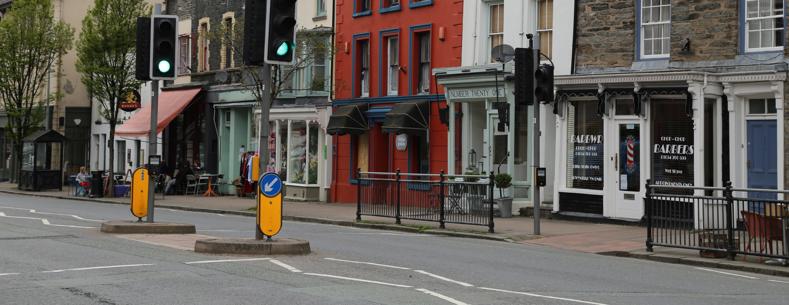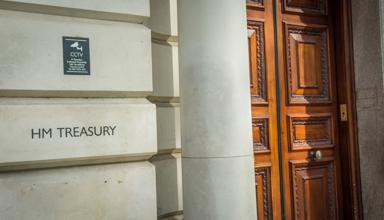The foundational economy employs around 40% of the Welsh workforce and accounts for 60% of businesses headquartered in Wales. But many people, including some of those who work in the foundational economy, don’t know what it is.
Our article explains what the foundational economy is, what the Welsh Government wants to achieve in this area, and how effectively it is supporting it. The Senedd will debate the Economy, Trade and Rural Affairs (ETRA) Committee’s report on the foundational economy on 9 July.
What is the foundational economy?
One of the ETRA Committee’s key findings was that there is “confusion around what the foundational economy is, and a lack of awareness of the term”. This was illustrated by Professor Karel Williams (one of the originators of the foundational economy concept), who said:
If you actually asked people in public services in Wales to define the foundational economy, I’d be surprised if one in 50 could actually give that one sentence definition.
Foundational Alliance Wales argues the Welsh Government has focused on a descriptive, sector-based definition of the foundational economy, when it should also look at an analytic definition based on improving wellbeing and liveability. It says these two definitions are “complementary and correct”.
The Cabinet Secretary for Economy, Energy and Planning, Rebecca Evans MS, responded to these concerns, saying “it is helpful if people are working to a single understanding”. The Welsh Government has now published a revised definition of the foundational economy, describing it as:
… the sectors of the economy that provide the goods and services that underpin everyday life.
The foundational economy sectors the Welsh Government has a strategic focus on are health and care services; social housing management; construction; energy and utilities; food; high street retail and services; tourism; and public transport.
The Welsh Government has also published a list of foundational economy objectives that includes increasing household liveability.
What are the Welsh Government’s foundational economy objectives?
There have been calls for greater clarity on what the Welsh Government aims to achieve through its support for the foundational economy. Adra and Dr Gary Walpole both wanted to see key performance indicators created, while the Development Bank of Wales advocated developing “a clear set of consolidated targets”.
In April, the Welsh Government published a mission statement setting out its foundational economy objectives. These include:
- Identifying and supporting opportunities for more and better jobs;
- Increasing household liveability;
- Building local supply chains;
- Contributing towards addressing the climate and nature emergencies; and
- Encouraging innovation and experimentation to improve basic goods and services
Following a recommendation from the ETRA Committee, the Welsh Government has said it will create “a set of key performance indicators, linked to the Wellbeing of Future Generations Act, to provide clarity of ambition”.
How effectively does the Welsh Government support the foundational economy?
Professors Paul Sissons and Anne Green believe the Welsh Government has been “a leader” in exploring ways to support the growth of the foundational economy. They note, however, that “Policy ‘levers’ for supporting FE development are heavily reliant on procurement practices”.
Organisations who had received support through the Foundational Economy Challenge Fund spoke of the positive impact it had. Cyfle Building Solutions said “without that pump-prime, we wouldn’t have piloted something”. However, a number of organisations raised the need for longer-term funding support to build on initial funding. For example, Well-Fed said “any mainstreaming requires longer term investment rather than short term grant”.
Foundational Alliance Wales has been more critical of the Welsh Government’s approach, saying “there are too few outcomes that are positive and policy driven” from explicitly-labelled foundational economy initiatives. It argues that, while there have been “accidental successes” from initiatives like the Foundational Economy Challenge Fund, the way the fund was developed diluted “the impact and learning opportunities”.
The ETRA Committee concluded that, while “there are a number of examples of excellent foundational economy initiatives”, the Welsh Government “needs to work with partners to learn from these and spread best practice more widely”.
Should the Welsh Government take a bottom-up approach to supporting the foundational economy?
Professor Karel Williams has called for the Welsh Government to take “a quite different kind of approach” to supporting the foundational economy. He argues the Welsh Government should focus on facilitating ‘alliances of the willing’, where organisations collaborate to deliver change. Professor Williams also called for the Welsh Government to support ’skunkworks’ projects, which “harness the power of small task centred units which are in but not of government”.
Organisations delivering foundational economy initiatives want the Welsh Government to support a bottom-up approach to delivery. Woodknowledge Wales believes “a bit of top-down policy setting, and then a lot of bottom-up enabling” is required to “inspire people to do things differently, and then help them and support them to implement that”.
Others advocate the Welsh Government playing a more interventionist role. Cynnal Cymru said:
Social innovation is important in generating new ways of doing things and making progress. Government also has a role in spreading these new ideas, and helping those who are not intimately involved in the FE [foundational economy] agenda and concepts to implement them. Both of these approaches are important.
Responding to the calls of the ETRA Committee, the Welsh Government will work with partners to identify opportunities for trialling a skunkworks-type approach, and will “use the lessons learned from the food community of practice in shaping further ‘alliances of the willing’”.
How should the Welsh Government support the foundational economy workforce?
There have been concerns for a number of years about the prevalence of low pay and poor working conditions in some parts of the foundational economy. Cynnal Cymru called for the Welsh Government to ensure public bodies are promoting payment of the Real Living Wage and supporting trade union recognition. In December 2024, the First Minister wrote to all public bodies in Wales, “encouraging them to consider the benefits of adopting the Real Living Wage and becoming a Real Living Wage accredited employer”.
Some public service organisations have developed ‘grow your own workforce’ initiatives, providing employment and training opportunities for deprived communities within their local area. Adra has established Academi Adra to provide skills, training and employment opportunities to its tenants. Aneurin Bevan University Health Board has adopted a new approach to recruiting healthcare support workers, which has changed entry requirements for this role, and used a different selection process to recruit from local communities
The ETRA Committee called for these approaches to be scaled-up across Wales in a way that meets the needs of local communities and employers. The Welsh Government will engage with health organisations to encourage adoption of these approaches across the sector, and will explore the scope for action in this area by local authorities.
What’s next?
The foundational economy is “central to the Welsh Government’s Economic Mission”, and the Welsh Government says the ETRA Committee report’s “helpful conclusions and recommendations” will shape its future activities. It will work with stakeholders to develop a future foundational economy prospectus by the first quarter of 2026, to be considered by the next Welsh Government after the Senedd elections.
You can watch the debate on the ETRA Committee report live on Senedd TV on 9 July.
Article by Gareth Thomas, Senedd Research, Welsh Parliament.






